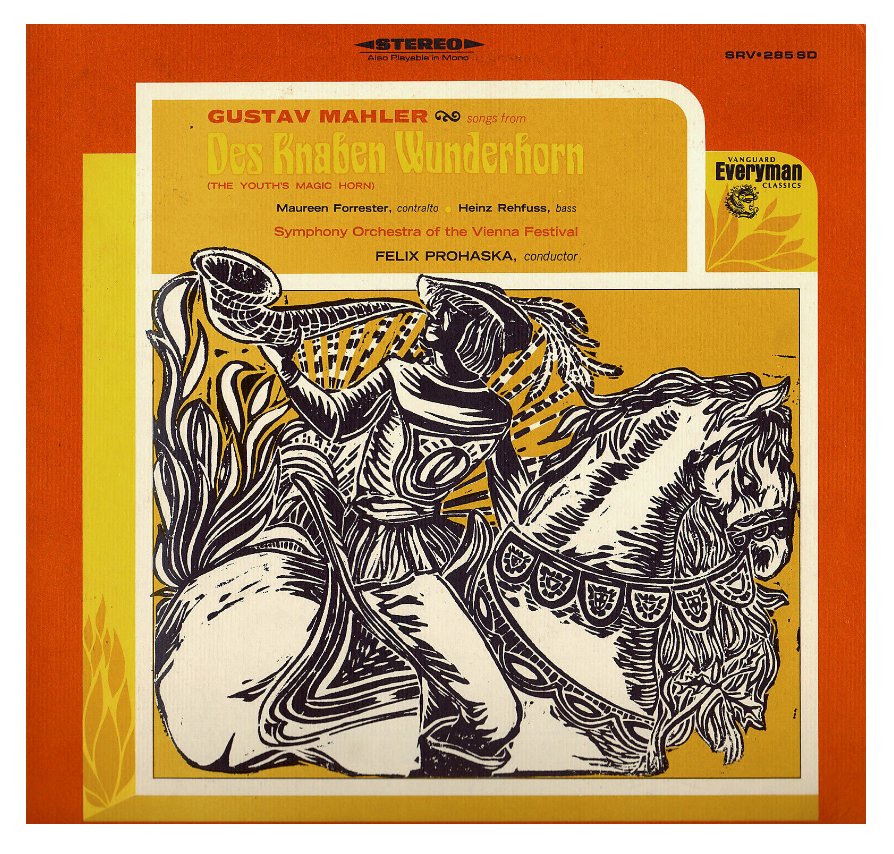Bass - Baritone Heinz Rehfuss
A Conversation with Bruce Duffie
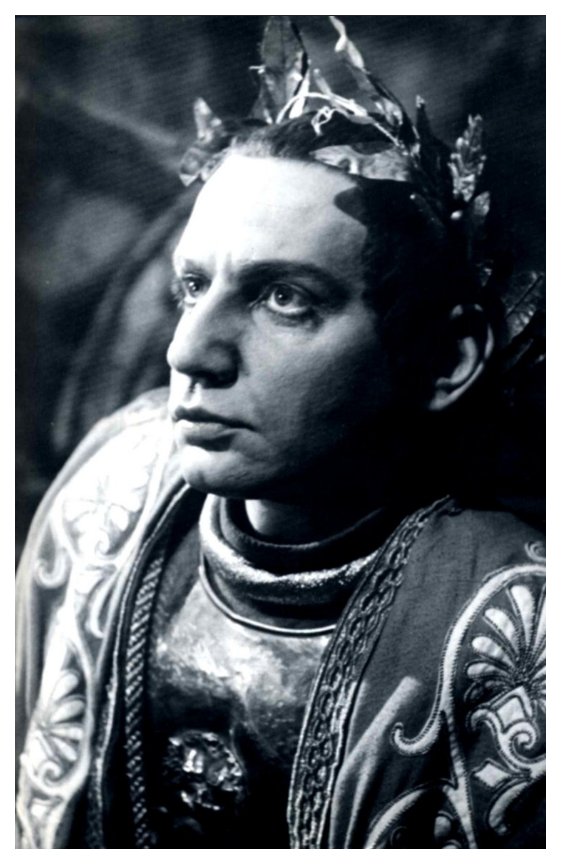
|
Heinz Refhuss
Born: May 25, 1917 - Frankfurt am Main, Germany
Died: June 27, 1988 - Buffalo, New York, USA
The German born, Swiss, and later American bass-baritone, Heinz (Julius)
Rehfuss, studied with his father, Carl Rehfuss (1885-1946), a singer and
a teacher, and with his mother, Florentine Rehfuss-Peichert, contralto. The
family moved to Neuchâtel, and Rehfuss became a naturalized Swiss citizen.
Heinz made his professional debut in opera at Biel-Solothurn in 1938. Then
he sang with the Lucerne Stadttheater (1938-1939) and the Zürich Opera
(1940-1952). He subsequently was active mainly in Europe and in America.
He became a naturalized American citizen.
Rehfuss taught voice at the Montreal Conservatory in 1961 and in 1965 was
on the Faculty of the State University of New York at Buffalo. In 1970 he
was a visiting professor at the Eastman School of Music in Rochester, New
York. He also toured Asia, giving vocal recitals in India and Indonesia.
He was successful mainly in dramatic roles, such as Don Giovanni and Boris
Godunov, but he was also a gifted Bach singer.
|
In April of 1987, just a month before his 70th birthday, I
contacted Heinz Rehfuss and he allowed me to call him on the telephone for
an interview. As can be seen below, we had a wonderful conversation.
His English was excellent, though, as is often the case, it was sprinkled
with unintended mannerisms and the occasional grammatical error. I
have fixed most of those, but some were simply so charming that they have
been left in this text.
I had admired his recordings for many years, and we talked about his career,
but we began with his pedagogical work . . . . . . .
Bruce Duffie: Let us start out with the teaching.
You’re professor of music at Buffalo?
Heinz Rehfuss:
Yes. I’m here now, for the twenty-second year. I joined in 1965
and at the same time I was also teaching at the Conservatoire de Musique
de Québec, Montreal, and sometimes at Eastman, Rochester, New York.
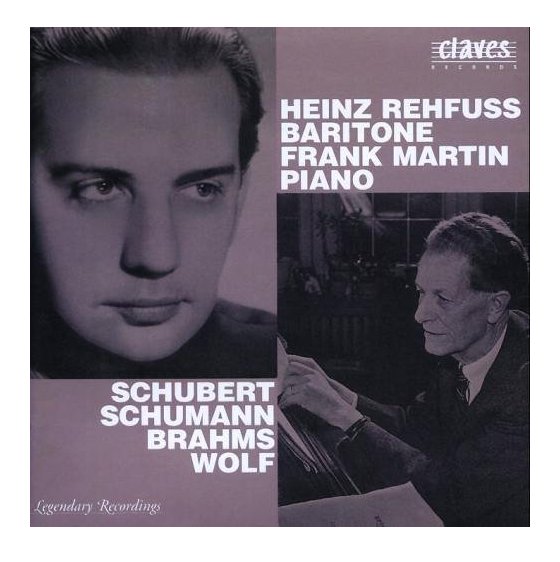 BD: You’re teaching both singing and stage acting?
BD: You’re teaching both singing and stage acting?
HR: Singing and
stage acting, and also I was staging some opera productions here with the
students.
BD: I read in your
biography that you got involved in opera productions very early in your career.
HR: Yes, because
I studied with the very famous opera stage director, Otto Erhart. He
was for a long time in Buenos Aires at the Teatro Colón, and I was
his assistant for a while.
BD: Why would somebody
who was primarily a singer want to also get involved with stage action so
early?
HR: That’s because
my parents both were singers, and I wanted to do something else. I
was attracted by the stage and by opera, naturally, so I decided to study
stage directing, and also I was also doing stage design at the beginning.
I was only eighteen years old, and continued to do that but the vocal possibilities
were stronger. You know what it is when professional groups of singers
have a young fellow telling them what they should do in performing and acting!
Naturally it was much easier to start singing, and then singing happened
to be successful. So I prevailed there, but I continued to do as much
directing as time permitted.
BD: You indicate
in that period it was not very good for a youngster to be directing older
singers, but now we seem to have quite a number of very young stage directors
with a lot of well-thought-out ideas. Has the pendulum swung completely
to the other side?
HR: I’m not so
absolutely sure about that because singers who have their so-called traditions
don’t want a young fellow to tell them what to do, especially because they
have much more advanced and revolutionary ideas about staging. They
get very uncomfortable if somebody comes and pushes them away from their
old ruts.
BD: [Laughs]
Should someone come and gently nudge singers out their ruts?
HR: Those young
people who have good ideas will prevail anyhow. Some who have ideas
which are a little bit too far-fetched will not be successful. But
I suppose a conscientious singer who thinks that a young stage director has
a new approach and something which is defensible will be willing to follow
his ideas! But some really are so eccentric that the singers almost
rebel if they have to sing upside down, or hang from the air. I did
a performance of Intolleranza by
Luigi Nono in Venice at the Festival, and I was suspended in the air in a
net. It’s not too comfortable to sing that way. It’s not the
way you feel it should happen in order for you to get your breath control
and everything.
BD: At what point
does the stage direction become too much, too far-fetched?
HR: That’s difficult
to say. Naturally with some opera houses
— particularly in Germany, Austria, or France, and even in Italy
— definitely I would say the singers themselves are young, and
try to understand what the stage director is trying to experience with them.
They are more willing than in a traditional opera house — talking
of Germany, like Munich or Berlin or Vienna — where they
don’t have the interest, and maybe not the time, to rehearse accordingly
— except when it is the festival and there’s a lot of time to
prepare the show. They don’t like to be too much pushed into experiences
and experiments.
BD: Are you basically
pleased with the ideas that are going around in stage direction today?
HR: Yes, I think
so. Some opera houses are really famous and renowned for being experimental,
and you expect these things to happen there. I saw such performances
when I had a sabbatical last year. I was touring Europe and getting
a little bit of information about what’s going on, and I was rather pleased
and amazed because opera is something which is not a museum art. It
has to go with your time, and this includes the traditional, not just the
contemporary composers.
BD: So there has
to be new life breathed into the old operas as well as the new operas?
HR: Right.
But somebody said if you dust, you should not take away the polish when cleaning
up the traditions. If you go really down to the bare bones, there’s
no more life and energy remaining.
* *
* * *
BD: We were talking
a little bit about stage direction, so let me ask you about singers.
How have singers changed in the last twenty, thirty, forty, fifty years?
HR: I think they
are coming back now more to the ‘bravura’ style, and they are digging out
again operas with a lot of coloratura and florid passages. The human
voice as a ‘bravura’ instrument is getting more accepted and requested now
in the repertoire, so you see the renaissance of the Donizetti operas, of
the Bellini operas, and all the Rossini works.
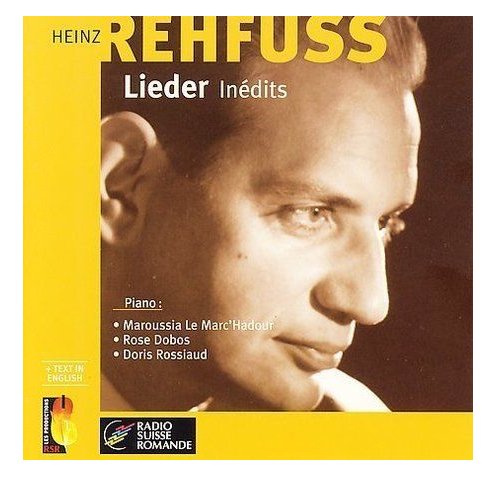 BD: Is that a good thing?
BD: Is that a good thing?
HR: I think so
because singers really have to work harder on their technique, and probably
they last longer that way.
BD: How do you
get young singers to take the time to build a career carefully instead of
trying to emerge too quickly?
HR: Yes, that’s
a good question because if a young singer is very promising, has a talent,
has a good voice, and has an acceptably ready technique, they are sometimes
pushed into parts they are not ready for yet. This goes for their interpretation,
and also technically and volume-wise because the young voice has to develop
organically and cannot be pushed too soon into the Strauss operas or some
of the ‘verismo’ works where you really tense up too much to produce a big
sound. This is also because some of the opera houses are acoustically
not the best for young voices to mature.
BD: You sang all
over the world. Did you adjust your technique at all from house to
house?
HR: I tried to.
Also, it’s interesting... For example, here in America you have an
overlapping of all these different multi-cultures, which is excellent.
But in Europe, since I’m from Switzerland, I was fluent in French, German,
and Italian, so I could see what they do in French opera houses, in Italian
opera houses, in German and Austrian opera houses, and the style is very,
very different from country to country. The Italians go more for generous,
big voice, beautiful voice, legato singing in the repertoire. Sometimes
the same operas are very differently produced in these three countries
or cultural levels.
BD: Is that because
the expectations of the audiences are different in these three cultures?
HR: Yes, and I
think it’s also because of certain traditions. In Europe you have two
different big systems. In Germany, for example, they have a so-called
‘repertoire’ theater where the
whole company of singers sing according to availability of repertoire.
But in Italy they have the ‘stagione’
principle where they have good singers who are very famous for certain parts
and they sing these parts all over, touring from town to town.
BD: Which is better,
or are they just different?
HR: I don’t know.
The ‘stagione’
is probably better because the young singer who has proven his possibilities
in a part can mature, singing it several times in different cities under
different conductors and stage directors. They may grow more organically
than somebody who is pushed into a part which is maybe not yet the best for
him. He cannot judge absolutely what is the best for him because he
has an appetite and he wants to get access as soon as possible to the parts.
He would like to sing but he’s not always counseled correctly by the conductor
or by the stage director, or even by the voice teacher.
BD: I would think
the voice teacher would be looking out for each singer!
HR: That’s right,
but sometimes the voice teacher is somewhere else, and he gets a letter or
they send him a program and reviews, but the singer loses some of the contact
with the teacher because the teacher is far away. He might just attend
the opening night and give some advice, but he has not the possibility to
keep the young singer under steady control. Also the young singer who
wants to follow up and improve his technique and overcome short comings sometimes
goes to another teacher in the city where he’s employed. That may be
an opportunity for him, and he can have another idea about him.
BD: In your career,
how did you decide which roles you would accept and which roles you would
decline?
HR: I was very
cautious. I was never the Italian baritone. I was more, what
they call in Germany, the ‘Cavalier Baritone’ — the
Mozartian parts and the dramatic parts, but not the very heavy parts.
BD: No Wagner?
HR: I sang Wolfram
and Klingsor, and Kothner in the Meistersinger,
but never, never the heavy stuff. You sing with your muscles, and the
more you work them out, the stronger they get. It’s like tennis, or
like weight-lifting. After a certain while you get stronger, and you
can touch repertoire which you were not physically and intellectually ready
for at the beginning of your career.
BD: Is singing
a performance like an athletic contest?
HR: To a certain
extent! Singing an opera lasting five hours, like some Wagnerian parts
that are very exacting, helps your stamina. You need a lot of strength
and endurance.
* *
* * *
BD: You’ve recorded
several French roles, so let us speak about a couple of those. First
the roles in Hoffmann.
HR: Very often
they are divided between a baritone and a bass-baritone and a high-baritone.
Dapertutto is usually sung by a high-baritone, especially if the aria is
sung in the original key. Sometimes they transpose it if it’s a lower
voice. Dr. Miracle is rather a character bass, and the other
one in the first act is always the buffo. So we must be very versatile,
but if within the scope of your voice you can adjust it, it’s better to have
one person to singing all the three characters, and even the character in
the prelude. It’s a little bit more difficult naturally, but there
is no problem for Hoffmann because he stays in the same tessitura.
Even for the four female parts, one is dramatic soprano, the doll is a coloratura,
and in the last act it is a lyric soprano. But some singers have that
versatility and technical flexibility to do them all.
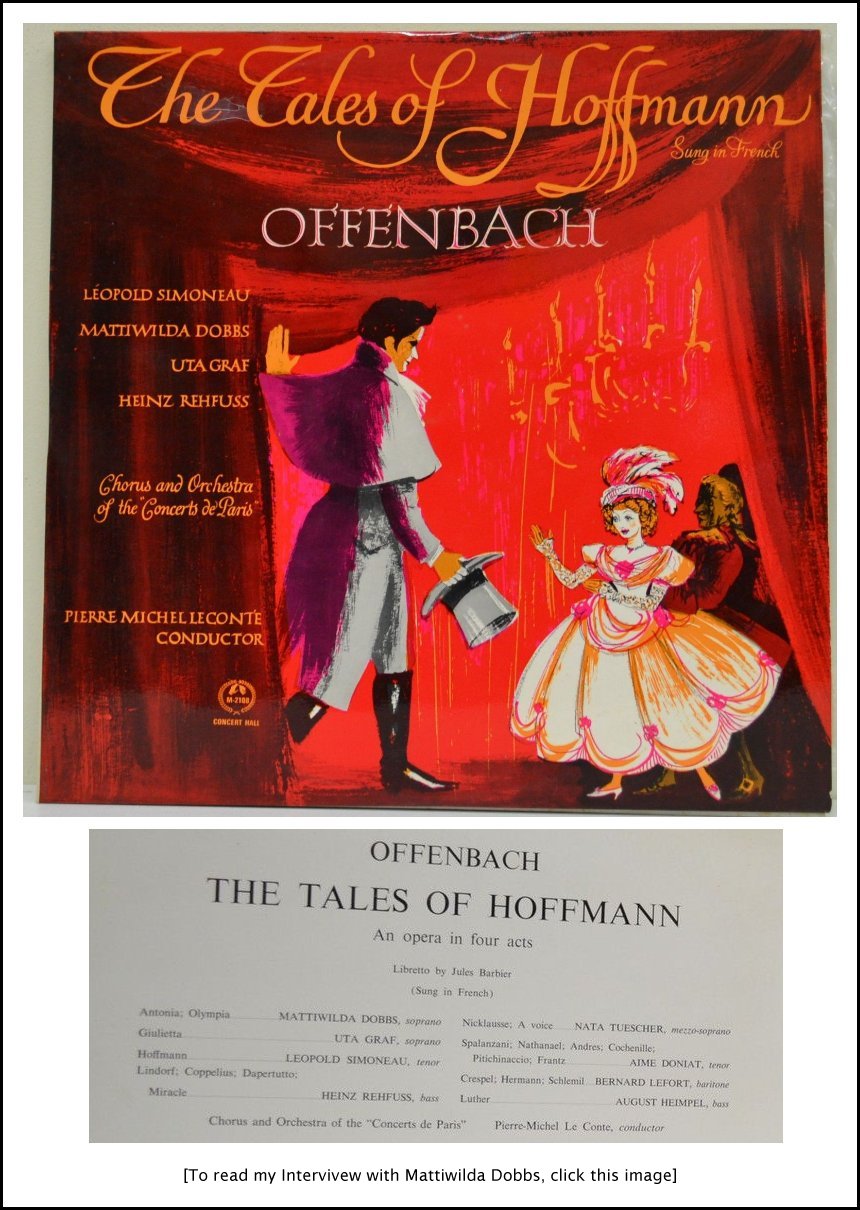
BD: Do you feel
all of these characters are different sides of the same coin, and by portraying
them with the same singer it brings that out?
HR: It seems to
me to be the original idea of Offenbach when he wrote it.
BD: It becomes
quite a ‘tour de force’ then for the soprano and the baritone!
HR: It certainly
is.
BD: Who is the
real hero of that opera?
HR: Probably E.
T. A. Hoffmann, the writer because he is, let’s say, the German Edgar Allan
Poe. That’s the magic and the phallic undertone which goes through
the whole opera. You know that the opera even was banned because some
people said it was bringing mishap to the theaters. The first time
it was performed in Vienna, there was the famous fire where the opera house
burned and there were a lot of casualties. For a very long time, some
people had apprehension to put in the repertoire. It was a doomed opera.
It came back in the ’20s when Max Rheinhart and his
people were doing extraordinary stagings, and there was Klemperer who was
conducting the Sadler’s Wells performances. Then the doom was forgotten
and the opera houses of the world over had to courage to play and put it
in the repertoire.
BD: There are a
couple of versions of this opera, are there not?
HR: Yes.
It’s not really two versions, but several. There is a possibility to
finish with the Venice Act and do the Munich Act before because it’s stronger.
And there is also a version where the Muse at the end has a long monologue
and he’s extending when the chorus has gone away off stage. Then there’s
a version which finishes with the students singing at the end. Basically
Offenbach couldn’t finish it completely because he died shortly before it
was first performed. In France they gave always the opera with the
spoken dialogue, but a student of his wrote the recitatives so it could be
given at the Grande Opéra. There was a habit in Paris that what
was given at the Opéra-Comique had dialogue, while what’s given at
the Grande Opéra everything has to be sung. So when they performed
it at the Opéra, he added the recitatives. The same thing that
happened with Carmen.
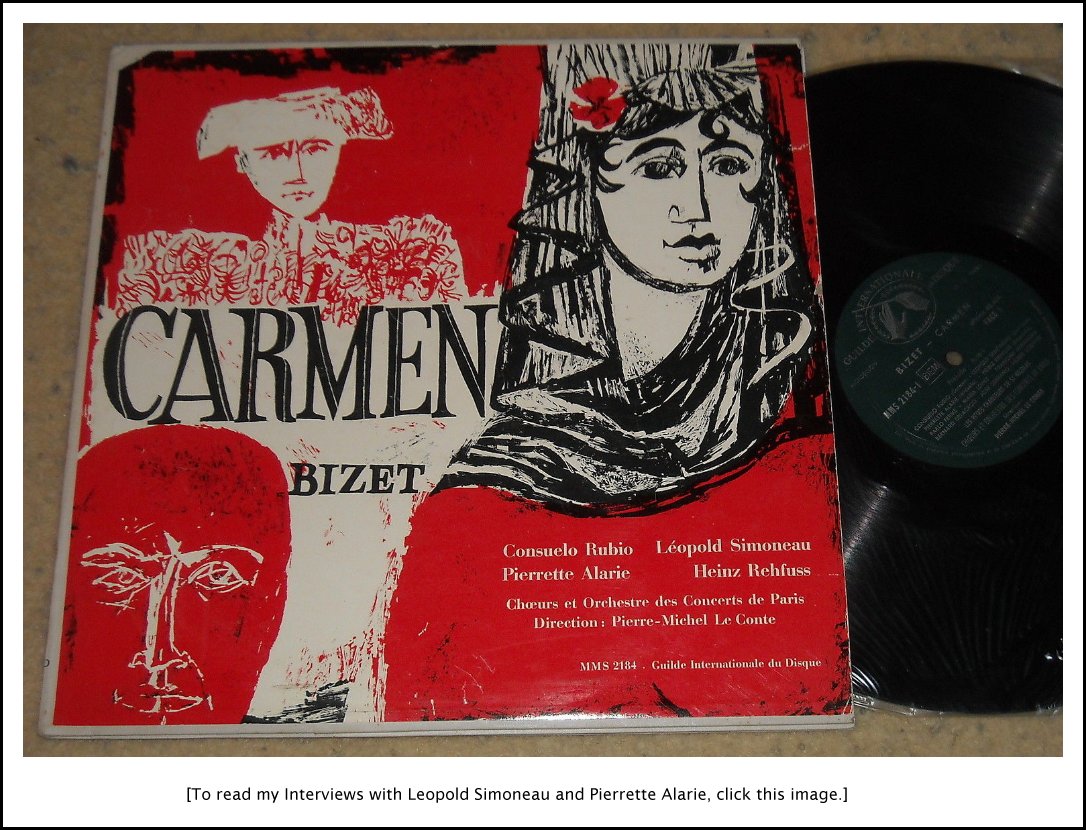
BD: Which is better?
Which is the stronger performance?
HR: I personally
would think that the recitatives are better because it’s very seldom that
singers speak a very good dialogue. He loses a little bit of the stage
presence.
BD: The projection?
HR: Yes, projection.
Also it’s not so good for the voice because if you continue after an aria
and suddenly talk, you must carry much more than if you continue to keep
your breath control, continuing and going the opera singer’s way. You
will notice, for example, in the Italian repertoire there is very seldom
spoken dialogue. Everything is recitative because the singer wants
to stay afloat with his voice control.
BD: Then singers
who are singing these roles in Hoffmann,
Carmen or The Magic Flute should be taught how
to speak like actors?
HR: I think so,
yes. There’s the exception of Magic
Flute which was, at Mozart’s time, almost like a musical nowadays.
It was performed for the enjoyment of the public. Also Mozart, besides
his genius, kept the tunes very popular. There’s a mixture of grandeur
in the chorus and in the so-called Egyptian scenes. Then the contrast
of Papageno and Papagena, with a lot of jokes, and they sing relatively easy
tunes. Naturally they were rather singing-actors than singers who have
to talk dialogue.
BD: Then let me
ask a balance question. Is opera art or entertainment?
HR: Oh, it should
be both. It should be very artistic and entertaining. Some are
more stilted due to their libretto and due to the character of the composer.
If you think of the Ring, naturally
Wagner did not have an idea to entertain his public. He wanted to elevate
them to almost a cult, and make it a celebration. But on the other
hand, staying with Wagner, in his Meistersinger
he would want maybe to entertain and be more down to the man in the street.
After all, it’s a comedy.
BD: You say Wagner
wanted to elevate the audience to a height. Was he trying to elevate
them to praise Wagner or to praise music or to praise God, or what?
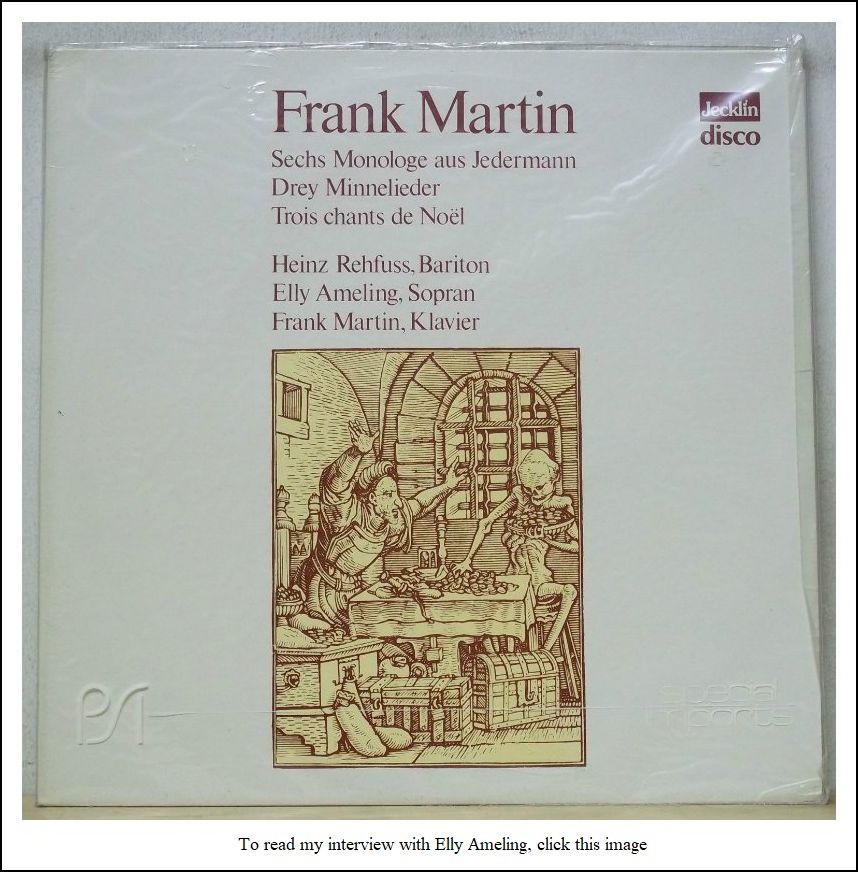
HR: I don’t know.
It is blasphemous, but I think he wanted to squarely praise himself.
It’s dangerous to say that, you know, but he wasn’t a very humble or modest
man. He was not only a composer and a philosopher, but he was a visionary.
I don’t know any composer who built his own theater, and it’s still there
after a hundred years. Mozart got his Salzburg Opera but that was done
by his admirers for the grandeur of his genius. He was from Salzburg,
which by the way, he didn’t like at all! Strauss and Hoffmansthal and
Max Reinhardt and others created a Mozart Center there in 1920.
BD: You sang some
Mozart...
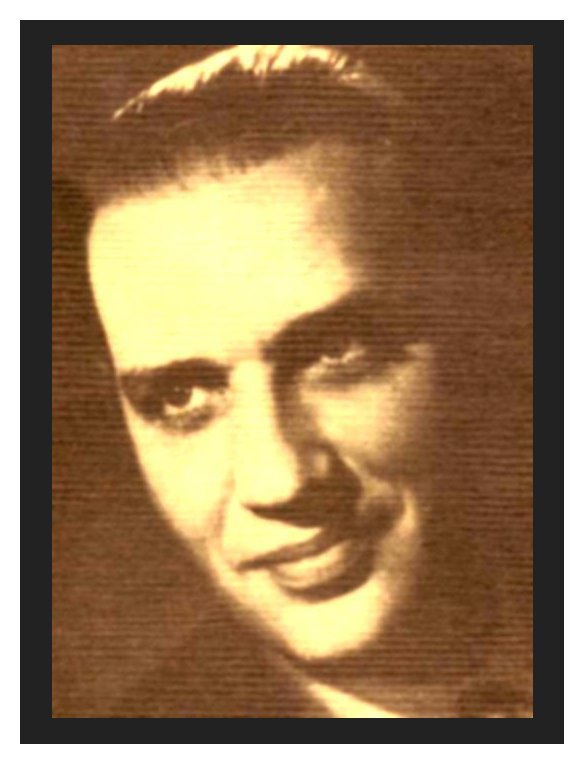 HR: Oh yes. I did Don Giovanni, I did the
Count, and in the ’50s I was the Don Giovanni at the
Aix-en-Provence Festival. I did recording of it and also Le Nozze di Figaro. That was at
a time when Rosbaud was taking over, and he was an excellent Mozart interpreter.
HR: Oh yes. I did Don Giovanni, I did the
Count, and in the ’50s I was the Don Giovanni at the
Aix-en-Provence Festival. I did recording of it and also Le Nozze di Figaro. That was at
a time when Rosbaud was taking over, and he was an excellent Mozart interpreter.
BD: Tell me the
secret of singing Mozart.
HR: Mozart is so
complete because you have to know not only the libretto but also the essence
and the style. It’s so specific, and I contend that if you can sing
Mozart you are ready for almost everything because everything is included
— bel canto, drama, philosophy. He was the most complete
genius. Who else wrote the perfect symphony, the best chamber music,
the best art songs and oratorios, and also operas? I think he’s the
most complete of all.
BD: Are there any
others who approach Mozart — perhaps in one or two
of these areas but not in all of them?
HR: Wagner, for
example, was unique, but in opera-drama. Beethoven only wrote one opera
and was discouraged. It is a magnificent opera but he was so criticized
that he was discouraged to start again. He wrote, as you know, for
different overtures. He wrote all kinds of rearrangements. There
was ur-Fidelio [Leonora] and then another Fidelio. Probably Verdi would have
had the versatility to do everything because one of his best productions
is his Requiem, which is an oratorio.
That is very dramatic, and he wrote fantastic chamber music, but probably
due to circumstances he was forced or at least inclined to write opera because
he had to make a living. That was also Italy’s first concern to have
operatic composers. Every year produces possibly outstanding opera.
They were expecting each new production like one expects a book from a famous
author. They want the next production.
BD: Why have we
gotten away from that today — the expectation of a
new work each year, from the great composers?
HR: Are there any
really very big composers today? I’m waiting for one. Maybe in
our time, after Richard Strauss, you could expect a new production of Britten.
In Germany there are some composers, but I don’t have the impression that
the world is keeping back its breath to see what comes next from these people.
Mind you, I don’t want to put them down at all.
BD: Why have we
lost this excited-ness?
HR: Isn’t it perhaps
because opera became such an extravagantly expensive thing in our world?
To put on an opera production now, especially in this country it’s very,
very difficult. In Europe you get support from the government or city.
Here in this country you get subsidies from big enterprises, but you really
have to worry enormously before you can even think of putting on a production
— except, naturally, in opera houses like where you are in Chicago,
and New York City, and San Francisco. Now more and more opera houses
get a real solid support from the authorities, but it’s a free-enterprise
and it’s a terrible risk.
BD: In Europe where
they have the state subsidy, are they getting better opera, or is it simply
more opera?
HR: They get more
opera. If you open a newspaper all over Europe, you will see that there’s
a production every night, and sometimes two productions. These artists
are on a steady salary, and whether they sing or not they get the same pay.
This excludes some exceptional singers who attract the huge audiences.
Beside the fact that they are very expensive, they are still relatively cheap
for their producers because if Pavarotti sings or Domingo sings, naturally
the people are willing to pay a bit more. I think it was Gatti-Cazzaza
[General Manager of the Met 1908-35] who said that Caruso was the cheapest
tenor he ever had because even though he had to pay him a very high fee,
he had twice the box office income. [Both laugh] You have people
without names who may be very, very good, but the public wants to see these
happy few. They probably have them on records at home and they read
about them. It’s almost like a sport where each club has one or two
big shots who get the big money, but they also bring in the big money.
BD: So they deserve
their super-stardom, you feel?
HR: Probably, yes;
certain ones if they stay good and strong. You see, the longevity of
the voice is relatively limited because the performer is also his instrument.
So if he loses stamina or gets into problems, that’s it. A pianist
has a good technique and can play the piano, but if you have enough money
in the bank you can buy another piano. A singer cannot buy a new voice.
* *
* * *
BD: Let us talk
a bit about your commercial recordings?
HR: I did a lot
of recordings mainly in the ‘50s, including a lot with Ansermet
such as operas, etc. for Decca. We also did some for Deutsche
Grammophon. I must have over sixty or seventy recordings, and some
won the Grand Prix du Disc like Pelléas
et Mélisande, and Les Noces
with Stravinsky conducting. I also did Oedipus Rex with Stravinsky which was
a Grand Prix du Disc.
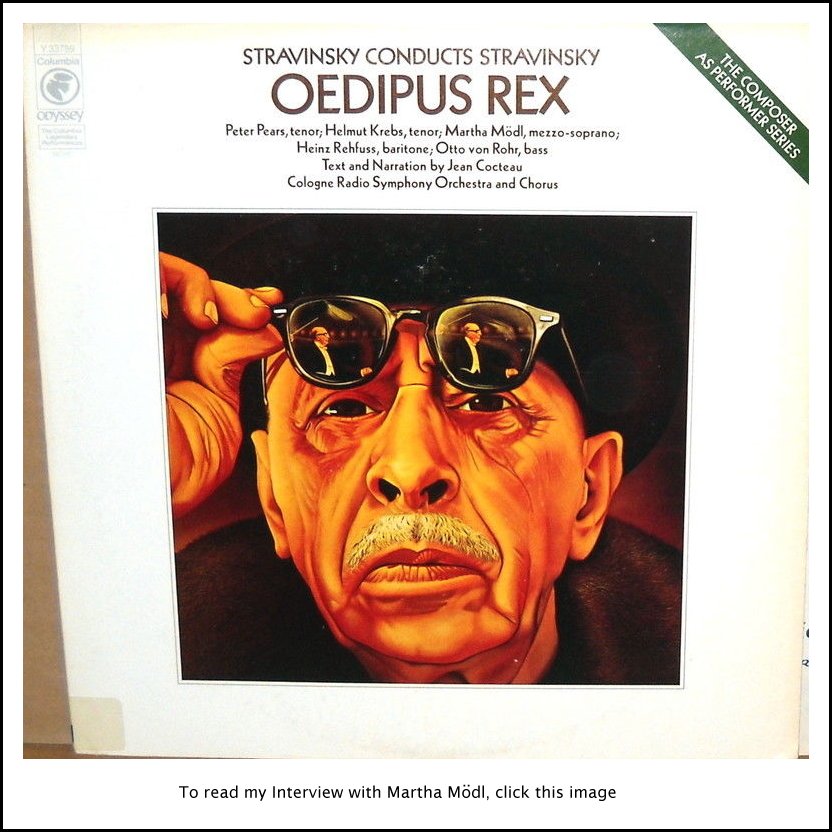
BD: Did you enjoy
making recordings?
HR: Oh, yes.
It’s very, very important because probably I otherwise wouldn’t have had
the opportunity to come to this country. I was known by my recordings,
and that’s why people got interested in getting me over here.
BD: Did you sing
differently for the microphone than you did in live performance?
HR: I don’t think
so, no. Sometimes the technicians came and would say, “Step back,”
or “Turn your head this way,” but I think if you want to give the full extent
of your interpretation, you shouldn’t be handicapped by that little machine
which is in front of you. It’s the technician’s job to balance the
excesses which may happen. They’re pretty good at it now.
BD: Is there a
chance that a recording is too technically perfect?
HR: Some, perhaps.
I like to work for Decca, which in this country is called London Records.
They have very good people, but that’s twenty years ago, and they’re still
very, very good. They were pioneers in this FFRR system. I seldom
listen to my own recordings, but sometimes if I have friends over and they
say, “Play a record!” It’s really astonishing how technically accurate
they were already in the ’50s.
BD: Do you think
the public has become, perhaps, enamored of their recordings?
HR: Maybe... you
may be right there.
BD: Opera is, of
course, both music and drama. Do you feel it works well on a purely
aural medium?
HR: That’s naturally
something which is missing because if I analyze the word ‘personality’
— which means personal, sounds through — you
can translate through the voice enormous expression. This needs, naturally,
visual realization as well, but you can visualize something through a voice
— as when you recognize voices on the telephone. You don’t
see the person but you do get a personality through the recording.
You should compare, for example, several performances of the same opera.
It’s very, very interesting to compare them. That’s probably also the
fact that it’s kept for posterity, that you can compare what the style was
in the ’20s, and then in the ’30s,
’40s and ’50s. That is
a big evolution, and it depends also on the personality of the conductor.
Karajan recordings have the imprint of Karajan. In a Maazel recording, you
hear the personality, you don’t see it, and even if you’re not specialist,
you can feel the difference. You can feel the aura which is in the recording.
Technology has really gone so far now. Very little is lost of what
the performer gives you if you see it when you hear it.
BD: Now the technology
has gone one step farther, and we have operas on television. Do you
feel that opera works well on the small screen?
HR: It’s a little
bit too small but what is good is that it reaches a large public who otherwise
would not get in touch with opera. Or it can help others who would
probably hate it unless they have seen that it can give them enormous impact,
enormous pleasure and enjoyment. They can see it on public stations,
and also they have now videos discs and video cassettes. So I think
a lot of public will gain from that, and it will decrease the thought that
this kind of music is considered for eggheads and not for people who are
not totally in the field.
BD: Is there any
artistic value in this, or it is promotion and exposure?
HR: It’s mainly
exposure, but since it reaches such a large group of people it is also good
thing which can broaden the artistic value. Compare if you lived, say,
fifty years ago in a city somewhere in Europe, which didn’t have the money
to produce good opera. Their local opera house gave them the best that
could be achieved, but now they can see it with a world standard what really
can be achieved in an opera.
BD: So you feel
it’s worth the exposure to have operas on the television?
HR: Certainly,
because it becomes a very lively art. It becomes something which is
in our time excites not only specialists, opera buffs, but a larger audience.
The people in the rural areas would probably never think of going to an opera
because they never have it in their lives. And to attend an opera now,
you know how expensive it is. You have to be almost extravagant to
attend.
* *
* * *
BD: All through
your career you’ve been a proponent of twentieth-century opera, of new works.
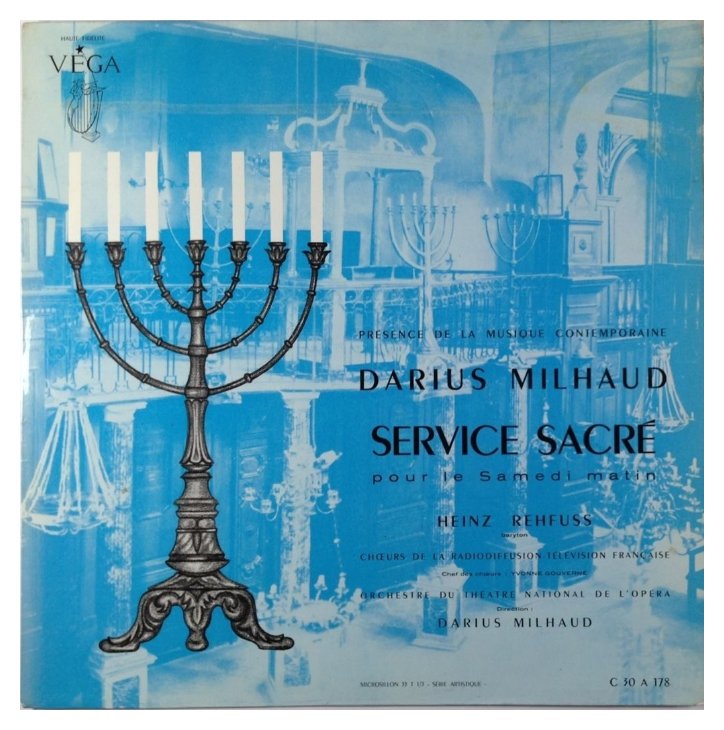 HR: Yes.
HR: Yes.
BD: Where is opera
going today?
HR: I wouldn’t
be a composer nowadays! I wouldn’t know where to go because on the
one hand if they get classical or neo-classical, if they get to this neo-veristic
or expressionistic style, they become imitators, and if they are too radical,
too much making scenic and musical experiences, they don’t get an audience.
In Europe sometimes, some opera houses can afford to bring operas they know
in advance that will not attract a crowd because in the budget they will compensate
with Aïda or La Bohème, or something like that.
Or in English-speaking opera houses they can go with Gilbert and Sullivan,
or with Lehár or Kálmán in Vienna. So one section
helps to finance the other, and that’s also a good principle which unfortunately
we don’t have in this country. If somebody was totally unknown and
who seems very weird for the audience, where do they get the money to produce
it? Sometimes the music publishers help a lot, and also in Europe the
radio and television stations help a lot in producing them. We did
a production of an opera by Ernest Krenek in Munich,
which was very avant-garde, called Die
Kaiserin. No theatre probably would have the courage to put
it into the repertoire. I know that Chicago did a lot of new things.
They did the world premiere of The Love
of Three Oranges by Prokofiev.
BD: That goes back
to the early ’20s, yes.
HR: Yes, but we
were very courageous then, and sometimes some opera houses get that reputation
to be the helpers for these young composers. Then they get an audience
internationally interested in all their world premieres. For example,
when I was Zurich, there was the world première of Lulu by Alban Berg. There was Mathis der Mahler of Hindemith.
In the mid-century they even had performances of Busoni operas which were
absolutely weird in the beginning of the century. So that stage got
a reputation of being an avant-garde theater, and they have their visibility
much more extended than it would be locally because the critics came and
there were reviews all over. Even in the score it’s written World Premiere
there on that date. There’s interchange of commercialism and of promoting
contemporary opera, and I think it’s a good thing because one helps the other.
BD: What advice
do you have for a young composer who wants to write opera today?
HR: In Europe there
are some of these composers who have the support of their publishers.
For example, Schott is very active there, as is Universal Edition UE in Vienna.
They need to promote new operas because when they print them, it’s not only
performed but all the libraries all over the world buy the score and put
on their shelves.
BD: But then do
they get done or do they just sit on the shelf?
HR: If an opera
is good, it prevails, don’t you think so?
BD: Well, I hope
so. Should opera be done in translation?
HR: That’s good
point. Yes and no! Yes, because it’s more accessible to be understood
by the audience, and no because the vowel which was used by the composer
to make the voice growing is a little bit betrayed. But I think for
certain operas, especially where there is a lot of fast recitatives and it’s
absolutely impossible to follow and to understand what’s going on, it’s better
to give it in a good translation. Now there’s a system of projection
of titles in the theater.
BD: Do you like
this idea.
HR: Yes, why not?
It’s better because it’s a compromise. It’s helping the acoustical
genuine-ness of producing the opera, and to make it understood! On
the other hand, if there’s too many words, then you really have to read and
you’re too much distracted. But I think they do a good job now.
You have it in Chicago as well?
BD: Yes, we’ve
had it the last couple of years.
HR: And you also
have it in Toronto. I would support it basically.
* *
* * *
BD: Let me ask
about a couple more roles that you have recorded. Tell me about Golaud.
What kind of a man is he?
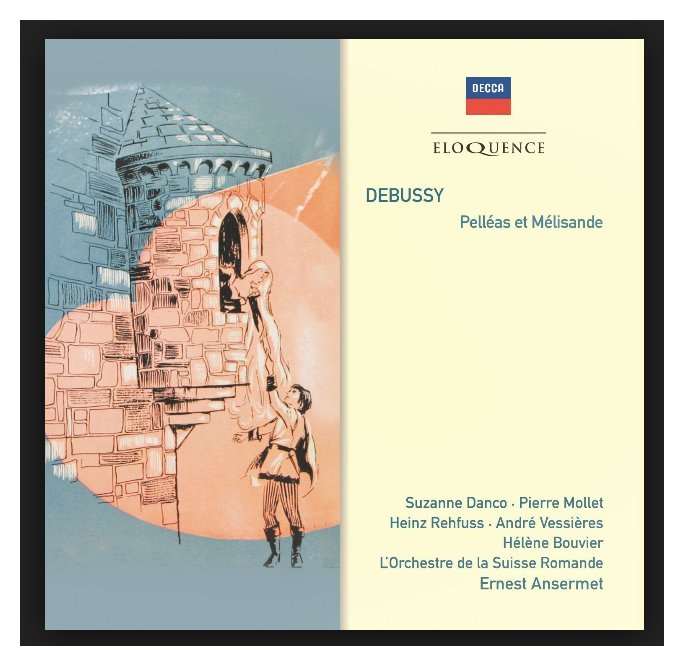 HR: Golaud is a very tormented man. On one
side he’s deeply in love with Mélisande, but he’s old and he competes
naturally with the younger and more attractive brother, Pelléas.
He’s also a little bit quick in temper and that’s the reason why he kills
his brother. He’s devastated about his activity. It’s a very interesting
role, very, very interesting. It is very difficult to bring out the
drama of that man. He’s very suspicious all the time. You see
the grandiose scene when he holds his son Yniold to check whether something
is going on in the bedroom upstairs. That’s really great, but it’s
very difficult to bring out the drama because he’s not a bad man, he’s just
tormented. He cannot cope with his desire to kill his brother because
he almost killed him already when they go to the grotto. He almost
pushed him down, and he said, “I cannot do that.” But then his jealousy
gets so strong that it’s beyond his control, and he kills his brother.
Also he wants to know whose child Mélisande is carrying.
HR: Golaud is a very tormented man. On one
side he’s deeply in love with Mélisande, but he’s old and he competes
naturally with the younger and more attractive brother, Pelléas.
He’s also a little bit quick in temper and that’s the reason why he kills
his brother. He’s devastated about his activity. It’s a very interesting
role, very, very interesting. It is very difficult to bring out the
drama of that man. He’s very suspicious all the time. You see
the grandiose scene when he holds his son Yniold to check whether something
is going on in the bedroom upstairs. That’s really great, but it’s
very difficult to bring out the drama because he’s not a bad man, he’s just
tormented. He cannot cope with his desire to kill his brother because
he almost killed him already when they go to the grotto. He almost
pushed him down, and he said, “I cannot do that.” But then his jealousy
gets so strong that it’s beyond his control, and he kills his brother.
Also he wants to know whose child Mélisande is carrying.
BD: Whose child
is it? Is there an answer?
HR: I don’t know.
I don’t know whether Pelléas and Mélisande were platonic.
I think it was a kind of platonic relationship.
BD: So then the
child would be Golaud’s!
HR: I think so,
but he has doubts about it. You should ask Maerterlinck what he meant!
[Both laugh] But I think probably it’s his child because probably with
Pelléas it was platonic more than erotic. I also don’t feel
in the music that Debussy thought it was really erotic compulsion which put
them together. Mélisande is half a child, so she doesn’t know
what’s happening to her. Some stagings are very realistic, and others
are more esoteric according to the trans-lucidity of Debussy’s music.
It is not totally realistic in the real world. It comes out with the
sets and with the handling of the orchestration. If you play it energetically,
it comes out very, very strong, very Wagnerian. It was a hate-love
of Debussy of Wagner. He wanted to prove that Wagner was wrong.
He was caught in his hate-love, yet some passages sound exactly like Parsifal. They are literally in
the same key, so that is the problem.
BD: Pelléas
then, is one of the great masterworks?
HR: Oh certainly.
I’m not a musicologist, but I think that in the first part of this century
there are only three great innovations in music — Pelléas, Wozzeck, and an opera from a composer
who didn’t write a lot of opera but he innovated, that’s Bluebeard’s Castle by Bartók.
It’s a short opera, as you know, but very special. These are the three
more radical innovations at the beginning of this century.
BD: Did you ever
sing Bluebeard?
HR: Oh, yes, very
often.
BD: On the stage
or in concert?
HR: On stage and
even for television, and in several languages, but not in Hungarian!
I didn’t dare. I sang it in German, in French and in Italian.
The production we did for the Belgian Radio a long time ago —
at least thirty years — was quite interesting,
and it went on all over Europe for a while.
BD: If that’s being
done in the opera house, what else should be done on the bill that evening?
HR: Sometimes we
did Falla’s Maese Pedro, the puppet
play, or we did L’Heure Espagnole,
or even L’Enfant et Les Sortilèges.
BD: Do the two
Ravel operas work well together as an evening?
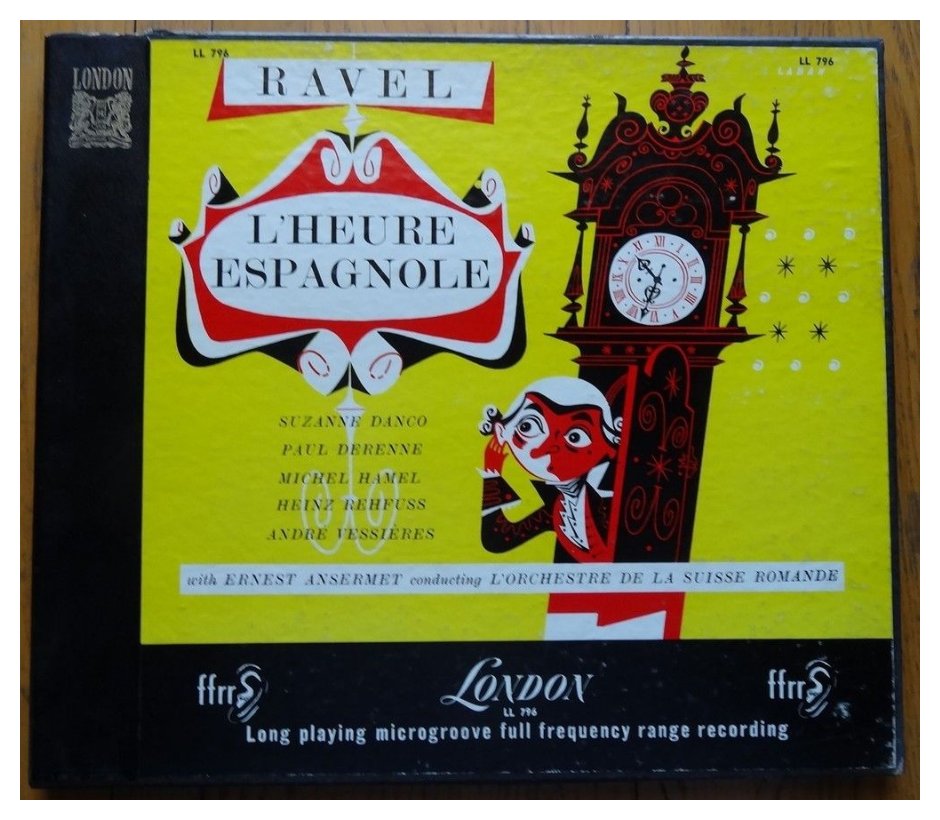
HR: It’s a possibility,
sure. Sometimes we did it also with Oedipus Rex, and there were nother combinations
we had. Whey did it once with Le
Roi David of Honegger, and even with Jeanne D’Arc au Bûcher, the other
Honegger. There should be a contrast because the Bartók opera
is very gloomy and very mysterious. It’s almost a written philosophy
of doom, so you must have a contrast to that, something lively.
BD: What advice
do you have for the young singer today?
HR: Study; be serious
about what you want to do; be patient; don’t ride too far out too soon; let
your personality and your voice mature, and observe what your forerunners
did and continue the tradition.
BD: Are you optimistic
about the future of opera?
HR: Oh, certainly,
certainly. There are excellent talents around, beautiful voices, and
there is a kind of renaissance of opera going on. Talking now about
the availability of young hopefuls — naturally, if
you teach a lot of students because you have to have a full load
— not all of them will make a career. But there’s always
one or two per generation in every town who are ready to be promoted to get
the possibility to show their potential.
BD: As you approach
your 70th birthday, is there any one thing that stands out in your mind as
being surprising that you never thought would happen?
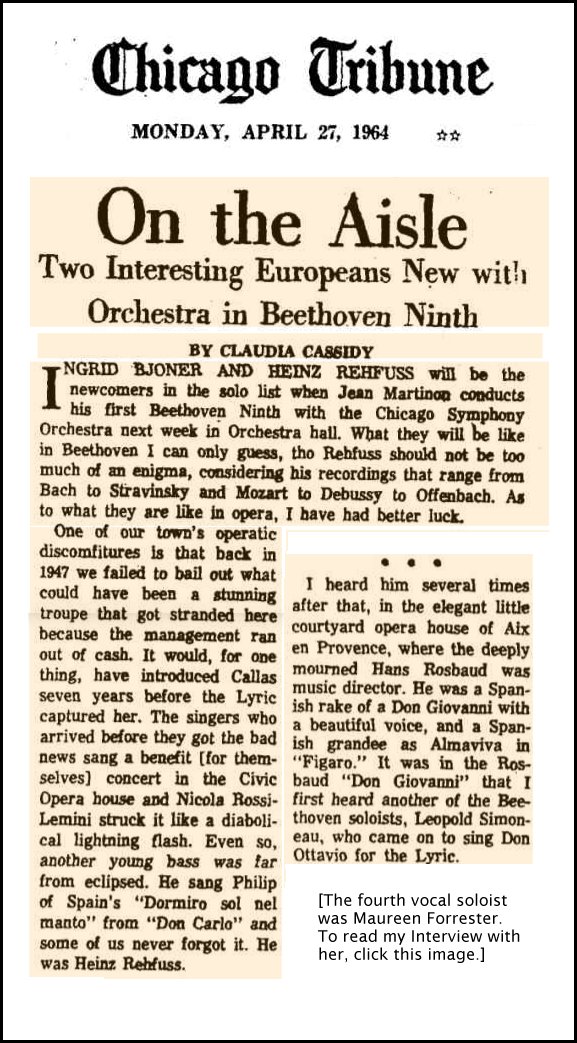 HR: I don’t believe that I’m 70!
I don’t feel like that. But the calendar says it so, and I have to
believe it. Also in the state of New York, at 70 you have mandatory
retirement, so I will retire in June and take it a bit easy. I may
do some lectures. I’ve been invited by several of the universities
to do some lectures or give a master-course. I also have a lot of notes
which have accumulated during all these years, and maybe I’ll put them together
and they may come out with a little brochure. But there are so many
already around that you must be very careful not to duplicate what others
said already... and maybe better than you can do it. But if you are
very sincere and you honestly try to explain what were the problems during
your long career, it may be helpful for young people. So I plan to
do that.
HR: I don’t believe that I’m 70!
I don’t feel like that. But the calendar says it so, and I have to
believe it. Also in the state of New York, at 70 you have mandatory
retirement, so I will retire in June and take it a bit easy. I may
do some lectures. I’ve been invited by several of the universities
to do some lectures or give a master-course. I also have a lot of notes
which have accumulated during all these years, and maybe I’ll put them together
and they may come out with a little brochure. But there are so many
already around that you must be very careful not to duplicate what others
said already... and maybe better than you can do it. But if you are
very sincere and you honestly try to explain what were the problems during
your long career, it may be helpful for young people. So I plan to
do that.
BD: I look forward
to that very much. I meant to ask you, did you ever sing here in Chicago?
HR: I was there
once with a company, just after the War, but unfortunately there was a lot
of intrigues. There was somebody who was supposed to back the whole
thing with money, and he withdrew because he got political aspects.
Some of the singers were thought to be ex-Nazi or ex-Fascist, or something
like that, which was not true. So it was a little bit tug of war between
local artists, who were a little bit worried and displeased that new people
were imported from Europe. So we had to interrupt the season.
I think it was in early ’47. Can you imagine, forty years ago!
I cannot believe it. It was a big experience because at the end of
the season we did Turandot, and
I was also cast to do Athanaël in Thaïs
by Massenet. It was supposed to be a good season. There were
good people there. There was [Marjorie] Lawrence, the two Konetzni sisters
[Hilde and Anny], [Salvatore] Baccaloni, Ebe Stignani, all people who were
very important at that time.
BD: And it all
fell apart?
HR: They were all
stranded there, so we sailed home after three weeks.
BD: I’m so sorry
that happened to you here.
HR: No, I still
keep a good memory of that time. I was at the very beginning of my
career.
BD: Did you sing
any other Massenet besides Athanaël?
HR: Yes, on radio
I sang Don Quichotte in a concert version. It has some very, very good
moments. If you have a strong personality for Don Quichotte, I think
it’s worth doing it. It was written, if I’m correct, for Chaliapin,
and there was André Pernet in Paris. He was famous for the part,
as was Vanni Marcoux. There’s a recording of him, which is very impressive.
BD: In a couple
of seasons [1913-14 and 1929-30] we had Vanni Marcoux as Don Quichotte (among
other roles) here in Chicago. [See my article Massenet, Mary Garden, and the Chicago Opera
1910-1932.]
HR: Oh, really?
But you’re not that old that you could see that!
BD: Oh, no, no,
no! I see it in the history books.
HR: That was, by
the way, a very good interpretation of the work. It’s too bad that
Ravel didn’t write the whole Don Quichotte.
His three songs for Don Quichotte are so really genuinely Spanish because
he was not only the elegant Frenchman, but by his parents he was also half-Spaniard.
So he would have written a great Don Quichotte
probably. When he wrote his piece, it was for the film, and he didn’t
even make it. It was Jacques Ibert who was accepted. He won the
competition, and his music was used in the movie.
BD: Tell me about
Athanaël.
HR: It’s kind of
popular in French-speaking sections. I did one performance in Geneva,
and we did one in Strasbourg, which is a very good opera house because they
have the technical possibilities of a German opera house because it was built
by Siemens. So it was one of the best stages in France. Naturally
now, everything has improved enormously. We’re talking about the ’50s
and early ’60s. But now most of the opera
houses in France have got a very good technical equipment. Some were
very, very not up to the technical things, because there was no money after
the War. But things are better and they have done a great job.
BD: Thank you so
much for being a singer! This has been a fascinating hour talking to
you.
HR: Oh, thank you
so much. Thank you for your interest.
© 1987 Bruce Duffie
This conversation was recorded on the telephone on April 26, 1987.
Portions were broadcast on WNIB the following month, and again in 1992 and
1997. This transcription was made in 2014, and posted on this website
at that time. My thanks to British soprano
Una Barry
for her help in preparing this website presentation.
To see a full list (with links) of interviews which have been transcribed
and posted on this website,
click here. To read
my thoughts on editing these interviews for print, as well as a few other
interesting observations, click
here.
* * * *
*
Award -
winning broadcaster Bruce Duffie
was with WNIB,
Classical 97 in Chicago from 1975
until its final moment as a classical station in
February of 2001. His interviews have also appeared
in various magazines and journals since 1980, and he
now continues his broadcast series on WNUR-FM, as
well as on Contemporary
Classical Internet Radio.
You are invited to visit his website for more information
about his work, including selected transcripts
of other interviews, plus a full list of his
guests. He would also like to call your attention
to the photos and information about his grandfather,
who was a pioneer in the automotive field more than a century ago.
You may also send him E-Mail with comments,
questions and suggestions.


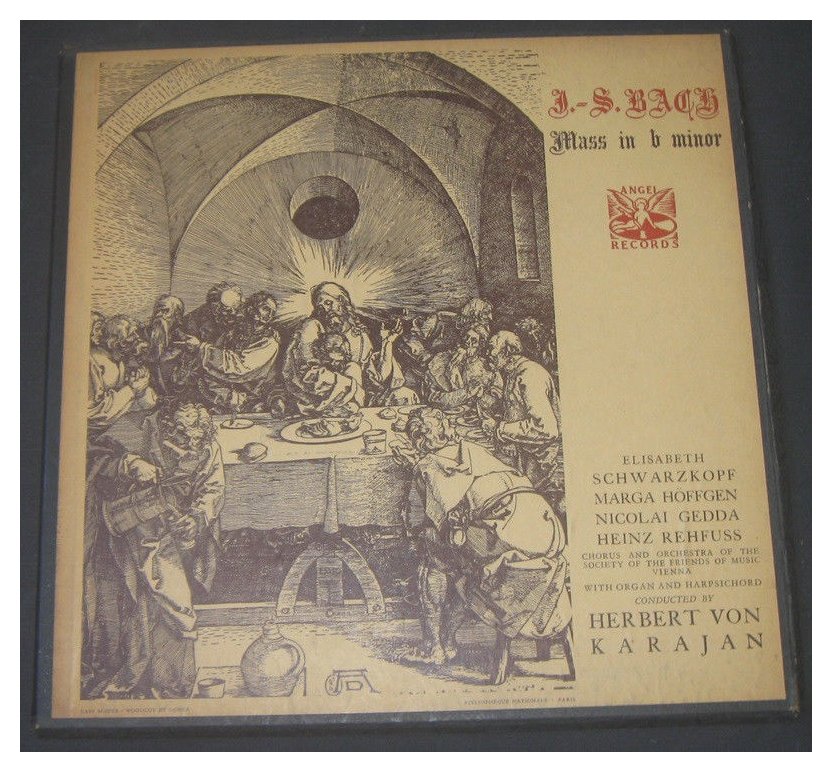
 BD: You’re teaching both singing and stage acting?
BD: You’re teaching both singing and stage acting? BD: Is that a good thing?
BD: Is that a good thing? HR: Oh yes. I did Don Giovanni, I did the
Count, and in the ’50s I was the Don Giovanni at the
Aix-en-Provence Festival. I did recording of it and also Le Nozze di Figaro. That was at
a time when Rosbaud was taking over, and he was an excellent Mozart interpreter.
HR: Oh yes. I did Don Giovanni, I did the
Count, and in the ’50s I was the Don Giovanni at the
Aix-en-Provence Festival. I did recording of it and also Le Nozze di Figaro. That was at
a time when Rosbaud was taking over, and he was an excellent Mozart interpreter.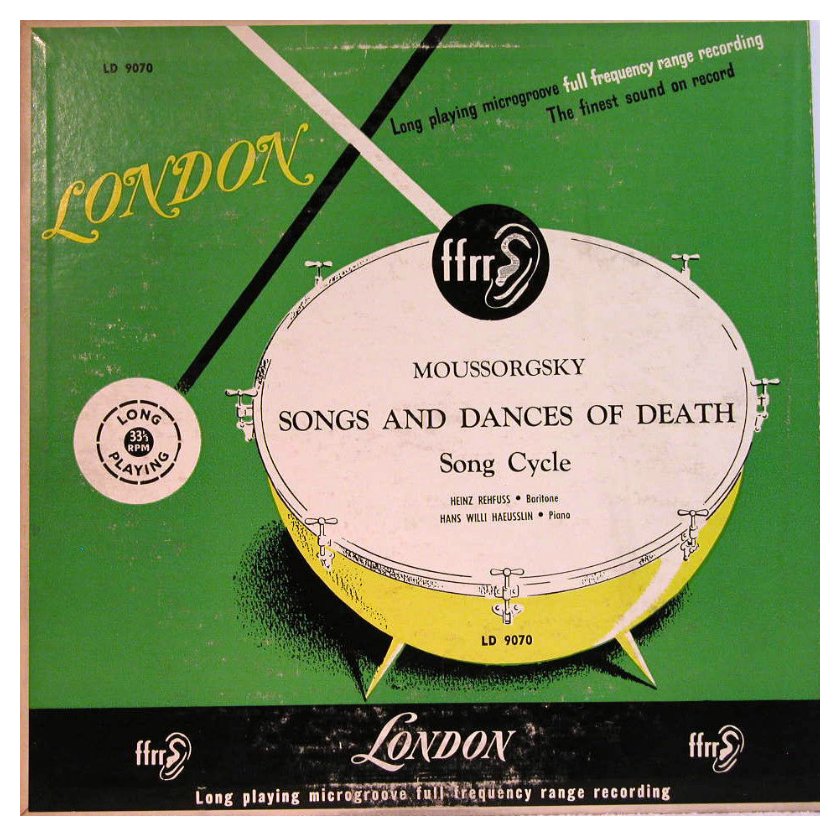
 HR: Yes.
HR: Yes. HR: Golaud is a very tormented man. On one
side he’s deeply in love with Mélisande, but he’s old and he competes
naturally with the younger and more attractive brother, Pelléas.
He’s also a little bit quick in temper and that’s the reason why he kills
his brother. He’s devastated about his activity. It’s a very interesting
role, very, very interesting. It is very difficult to bring out the
drama of that man. He’s very suspicious all the time. You see
the grandiose scene when he holds his son Yniold to check whether something
is going on in the bedroom upstairs. That’s really great, but it’s
very difficult to bring out the drama because he’s not a bad man, he’s just
tormented. He cannot cope with his desire to kill his brother because
he almost killed him already when they go to the grotto. He almost
pushed him down, and he said, “I cannot do that.” But then his jealousy
gets so strong that it’s beyond his control, and he kills his brother.
Also he wants to know whose child Mélisande is carrying.
HR: Golaud is a very tormented man. On one
side he’s deeply in love with Mélisande, but he’s old and he competes
naturally with the younger and more attractive brother, Pelléas.
He’s also a little bit quick in temper and that’s the reason why he kills
his brother. He’s devastated about his activity. It’s a very interesting
role, very, very interesting. It is very difficult to bring out the
drama of that man. He’s very suspicious all the time. You see
the grandiose scene when he holds his son Yniold to check whether something
is going on in the bedroom upstairs. That’s really great, but it’s
very difficult to bring out the drama because he’s not a bad man, he’s just
tormented. He cannot cope with his desire to kill his brother because
he almost killed him already when they go to the grotto. He almost
pushed him down, and he said, “I cannot do that.” But then his jealousy
gets so strong that it’s beyond his control, and he kills his brother.
Also he wants to know whose child Mélisande is carrying.
 HR: I don’t believe that I’m 70!
I don’t feel like that. But the calendar says it so, and I have to
believe it. Also in the state of New York, at 70 you have mandatory
retirement, so I will retire in June and take it a bit easy. I may
do some lectures. I’ve been invited by several of the universities
to do some lectures or give a master-course. I also have a lot of notes
which have accumulated during all these years, and maybe I’ll put them together
and they may come out with a little brochure. But there are so many
already around that you must be very careful not to duplicate what others
said already... and maybe better than you can do it. But if you are
very sincere and you honestly try to explain what were the problems during
your long career, it may be helpful for young people. So I plan to
do that.
HR: I don’t believe that I’m 70!
I don’t feel like that. But the calendar says it so, and I have to
believe it. Also in the state of New York, at 70 you have mandatory
retirement, so I will retire in June and take it a bit easy. I may
do some lectures. I’ve been invited by several of the universities
to do some lectures or give a master-course. I also have a lot of notes
which have accumulated during all these years, and maybe I’ll put them together
and they may come out with a little brochure. But there are so many
already around that you must be very careful not to duplicate what others
said already... and maybe better than you can do it. But if you are
very sincere and you honestly try to explain what were the problems during
your long career, it may be helpful for young people. So I plan to
do that.